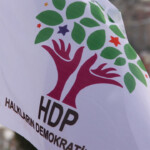Under Erdoğan, Turkey has become an authoritarian state where almost all institutions are controlled by the president. Even if international investors are won over by Şimşek’s appointment, the fact of the matter is that the Western capitals whose support Turkey will need are increasingly uncomfortable with Erdoğan’s repressive policies.
Newly reelected Turkish president Recep Tayyip Erdoğan wasted no time contacting former economic czar Mehmet Şimşek to convince him to become Treasury and Finance minister in his new cabinet. However, Şimşek—an orthodox economist with a stellar international reputation—believes in the opposite of what Erdoğan has been asserting and implementing over the last few years.
By spending significant political capital on convincing him to join his cabinet, Erdoğan has, in effect, admitted that one cannot fight inflation with low interest rates. Turkey is therefore about to do a U-turn in its economic policies as it struggles with high inflation rates, a debilitating current account deficit, a declining Turkish lira, and a high probability of complete economic collapse.
Yet during the recent electoral campaign, Erdoğan gave no indication that he would change course; he was in fact pretty proud of his economic accomplishments. The rest of the world, however, saw things differently, and Erdoğan too must have come to the same realization.
Why Şimşek? Şimşek was known to harbor doubts about Erdoğan’s commitment to unorthodox economic policies. By entrusting the economy’s management to Şimşek, the Turkish president is in effect seeking to send a clear message to the rest of the world that he is serious about implementing change.
Turkey’s main shortcoming in international capital markets has been lack of credibility. It has had a difficult time raising funds and attracting direct foreign investment. This absence in confidence can be traced back to March 2021, when Erdoğan summarily dismissed the Central Bank governor Naci Ağbal 24 hours after he had implemented a 200-basis point increase in the interest rate. That decision has since caused international bond traders and direct investors to shun Turkey.
Şimşek’s employment represents the first step in rebuilding. He has already signaled that he will be returning Turkish economic policy to more orthodox territory, stating on Sunday that the country has no choice but to “return to rational ground.” Although the lira slipped Monday, stocks and bonds rallied in response to the appointment and Şimşek’s promises of a “rules-based, predictable Turkish economy.”
Next, he is likely to push for an increase in interest rates (a new Central Bank governor will also be appointed soon) by a staggering amount—from the current 8.5 percent to as much as 25. This will be followed by other rate hikes down the road.
Other options will also be on the table depending on the progress made. Among them is an IMF package. For international investors who may like Şimşek but worry that he would be undermined, or like Ağbal could be shown the door by Erdoğan, the IMF represents the ultimate guarantee.
Any program is likely to lead to a recession, increased unemployment and otherwise difficult days and months for the Turkish people. It is always smart to introduce such economic stabilization measures at the beginning of a term, when political support is at its peak, no matter how contradictory they maybe in relation to election promises. In addition, this timing gives the government a longer horizon to see—and get credit for—the positive effects.
Şimşek however will be confronting a highly problematic international picture. It is not just worsened economic conditions that he will be struggling against, but a deterioration in Turkey’s international image. Under Erdoğan, Turkey has become an authoritarian state where almost all institutions are controlled by the president. Even if international investors are won over, the fact of the matter is that the Western capitals whose support Turkey will need are increasingly uncomfortable with Erdoğan.
When traveling in Western capitals selling his program, Şimşek should not be surprised if he is confronted with questions regarding the abuse of power and disappearance of the rule of law in Turkey. Europeans, from government officials to journalists, are likely to ask him about the fate of prisoners like the leader of the Kurdish party, Selahattin Demirtas and civil society leader Osman Kavala, who have been languishing in jail for years on trumped up charges. In both instances, the European Court of Human Rights has demanded their release. Turkey, a signatory to the institution, has simply ignored these rulings. While wishing Şimşek success in his endeavors to stabilize the Turkish economy, he may need to be reminded that he should also push his boss to ease up on the repression and release the thousands of prisoners who have been unjustly condemned. Such an outcome would be as helpful to him as many of the interest hikes he is planning to push through. Foreigners are always sensitive to the absence of rule of law because it creates an atmosphere of uncertainty and fear. For example soon after winning the elections, Erdoğan’s government institutions sought to punish opposition news outlets for “unfairness” in their reporting. Şimşek will be hard-pressed to defend a system that routinely engages in such arbitrary behavior.
This views and opinions expressed above are the author’s and do not represent those of the Free Turkish Press.


